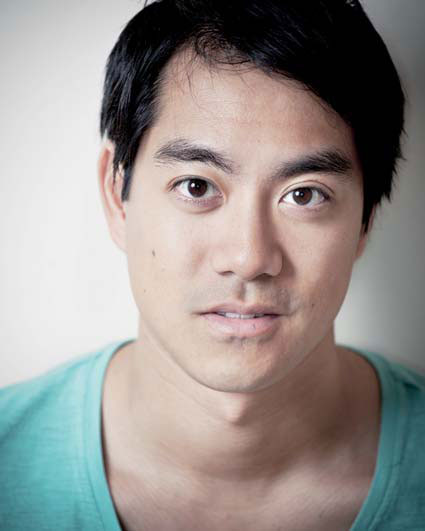Changing Chinatowns
Updated: 2012-11-16 11:10
By Cecily Liu (China Daily)
|
|||||||||||
Maintaining identity
|
Chinese photographer Mike Tsang showcased the exhibition Between East and West earlier this month in London. Provided to China Daily |
Despite the ease with which second generation Chinese migrants can integrate into Britain's mainstream society, Chinese culture and language still remain a part of their identity.
Mandarin learning is growing in popularity, says Zhu Xiaojiu, headmistress of the London Mandarin School, which holds Mandarin classes every Sunday for school children.
"The school was set up in 1997 by some parents who wanted their children to learn Mandarin. Times have changed and the school now has over 300 students on its rolls," Zhu says.
She adds that most of the students at the school are second-generation Chinese migrants, who are encouraged to learn Mandarin by their parents.
"More and more parents realize that it is important for their children to learn Chinese not just for better job prospects but also keep up with the Chinese tradition," she says.
But keeping up with the Chinese tradition is a goal shared not only by British Chinese parents, but also their children. This is particularly true for second and third generation British Chinese who developed a curiosity for their identity as a result of being separated from their homeland.
One such third generation migrant is the 30-year-old photographer Mike Tsang, whose search for his identity led him to showcase the exhibition "Between East and West" earlier this month in London.
Combining photographic portraits, interview excerpts and archived images, the exhibition documented the stories of 15 British-born Chinese from a range of occupations - an actor, policeman, medical shop owner, music producer and artist, to name a few.
|
||||
"I think it has helped me to connect with my parents more. My parents think they are Chinese, absolutely! But I find that quite interesting, because they've never been to China. So one of the interesting things I've learnt about my own family is that cultural values have been passed down."
Tsang's urge to connect with his Chinese roots is shared by Steven Cheung, a 22-year-old torch-bearer at this year's London Olympic Games. After the Olympic Games, Cheung announced plans to travel across about 10 Chinese cities to exhibit his torch before auctioning it in aid of China's Hope Schools, a charity project to help poor children.
"I am grateful for the opportunity to study in the UK, and I want to help other Chinese children who are less fortunate," says Cheung, who arrived in the UK with his parents at the age of 12.
Cheung says that the torch relay made him feel closer to China, since Beijing was the last city to host the Olympics. "The Beijing Olympics showed the world what China is capable of. As a young British Chinese, I'll continue to develop links between Britain and China."
As a radio presenter for Spectrum Radio's Chinese program and an active member of the BC Project, Cheung became the first British Chinese to receive the prestigious Princess Diana Award, in 2009, for his work in the community.
Despite his achievements in Britain's mainstream society, Cheung says that he still sees China as home. "China is still home for me. It is a country just beginning to emerge on the world stage and I hope to play my part in helping it to gain global understanding and acceptance," he says.
cecily.liu@chinadaily.com.cn

(China Daily 11/16/2012 page1)
Today's Top News
Rescuers race against time for quake victims
Telecom workers restore links
Coal mine blast kills 18 in Jilin
Intl scholarship puts China on the map
More bird flu patients discharged
Gold loses sheen, but still a safe bet
US 'turns blind eye to human rights'
Telecom workers restore links
Hot Topics
Lunar probe , China growth forecasts, Emission rules get tougher, China seen through 'colored lens', International board,
Editor's Picks

|

|

|

|

|

|









